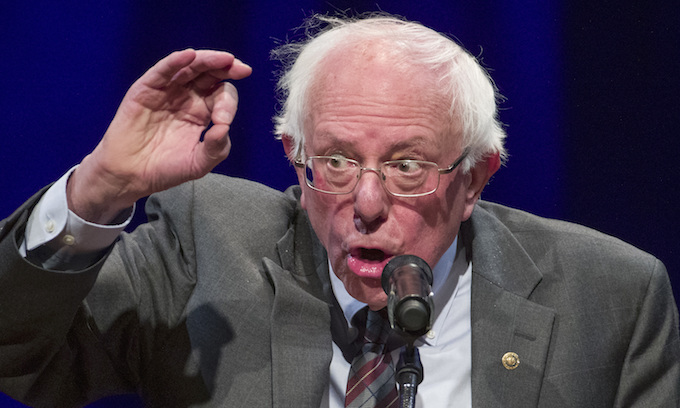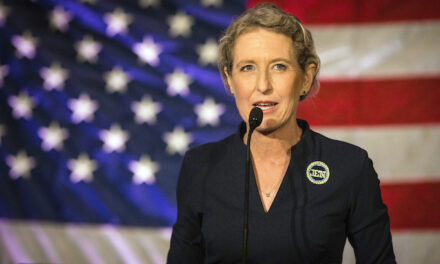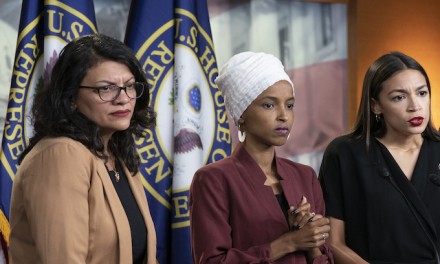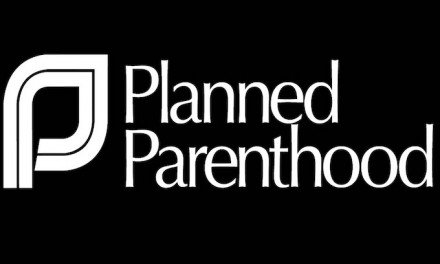Socialism may be chic in Brooklyn, but it may not play well in Peoria, particularly in a presidential election year. Multiple polls reveal that socialism is regarded as a fair-minded utopia by the young and restless. They like it. They want to live there. Everybody will be happy. Or something.
Others get jittery over the idea of socialism — a trend not lost on Sen. Bernie Sanders, a Vermont independent who is running for president as a Democrat and a longtime self-described democratic socialist. He appears to be on the verge of trying to rebrand this ideology, or at least his version of it.
“I think what we have to do, and I will be doing it, is to do a better job maybe in explaining what we mean by socialism — democratic socialism. Obviously, my right-wing colleagues want to paint that as authoritarianism and communism and Venezuela, and that’s nonsense. What I mean by democratic socialism is that I want a vibrant democracy. I find it interesting that people who criticize me are busy actively involved in voter suppression trying to keep people of color or low-income people from voting, because they don’t want a vibrant democracy. I do,” Mr. Sanders told National Public Radio.
“Second of all, what it means is that in the wealthiest country in the history of the world we can provide a decent standard of living for all about people. That’s just the reality. That’s not utopian dreaming. That is a reality,” Mr. Sanders continued, also vowing that “health care for all” and a $15-per-hour minimum wage is on his to-do list.
But there’s another motivation.
“Republicans appear to be ramping up to make the term ‘socialism’ one of their key weapons in the 2020 race. President Trump has repeatedly criticized socialism in his tweets and in speeches this year, and the term was repeatedly invoked at this year’s Conservative Political Action Conference,” writes Danielle Kurtzleben, a political reporter for NPR.
“While Sanders’ socialist brand may play well among primary voters, it could be tougher to sell among more moderate Democrats and centrist or right-leaning independent voters. A recent NBC News/Wall Street Journal poll provides some evidence of this: Only 25 percent of Americans said they’d be enthusiastic or comfortable voting for a socialist, while 72 percent said they had reservations or were uncomfortable with the idea,” she said.
Mr. Sanders is hiding the “bloody history of socialism,” talk radio host Michael Savage told his 8 million listeners on Wednesday.
A BRIEF REALITY CHECK
Denmark continues to be held up as a socialist role model by some Americans, perhaps unaware that some socialist principles might work in a nation of 5.7 million people. It would get very complicated in the U.S., population 327 million.
“I know that some people in the U.S. associate the Nordic model with some sort of socialism. Therefore I would like to make one thing clear. Denmark is far from a socialist planned economy. Denmark is a market economy,” Danish Prime Minister Lars-Lokke Rasmussen told an audience at Harvard University in 2015, a time when both the aforementioned Bernie Sanders and Hillary Clinton — both presidential hopefuls at the time — were talking Denmark up as a positive example.
ON THE RADAR
Arriving in six months: “The United States of Trump: How the President Really Sees America,” by Bill O’Reilly.
“Not a partisan pro-Trump or anti-Trump book, this is an up-to-the-minute, intimate view of the man and his sphere of influence,” publisher Henry Holt & Co. says in advance notes.
The author will describe how President Trump’s view of the nation evolved, and how it has changed since he became “the most powerful person in the world.”
Mr. O’Reilly has perspective. He has known Mr. Trump for three decades.
“If you want some insight into the most unlikely political phenomenon of our lifetimes, you’ll get it here,” advises the author.
A HAPPY WEEK FOR REPUBLICANS
The Republican war chest just keeps growing. The Republican National Committee reports that it raised $14.6 million in February — a record-breaker for that month in a non-election year. The Democratic Party pulled in $11.6 million in that month.
“We can’t let this news go unanswered. Our plan to take back the White House in 2020 doesn’t require we beat these fundraising numbers, but it does require we keep pace — and right now, we’re at risk of falling dangerously behind,” warns Democratic National Committee chairman Tom Perez in — yes — a fundraising message.
AN UNHAPPY WEEK FOR CNN
Could extreme programming be having a toxic effect on CNN, founded in 1980 by Ted Turner and the first 24/7 news channel? Could be.
“Last place CNN’s already humiliating ratings nosedived by double digits last week. Even more than usual, some ten days ago the far-left CNN launched a 24/7 jihad against President Trump, going so far as to question his mental health, his patriotism, blaming him for a mass murder in New Zealand, and serial lying about his response to Charlottesville. But this unhinged hate campaign obviously turned off a considerable number of Americans,” writes John Nolte, editor-at-large for Breitbart News.
“When compared to this same week last year, CNN lost 16 percent of its primetime viewers and 17 of total day viewers; young people ran away screaming: In the advertiser-coveted 25-54 age demo, CNN shed an incredible 31 percent of those viewers during primetime and 29 percent in total day,” Mr. Nolte writes, quoting new ratings numbers from Nielsen Media Research.
“CNN’s numbers look especially bad when compared to its direct competition during this same time period. Fox News, which nearly triples CNN in primetime viewers and more than doubles CNN in total day viewers, held almost perfectly steady with a one percent increase in primetime viewers and one percent decrease in total day viewers” he writes.
Indeed, Fox News pulled in 2.4 million fans in primetime compared to 939,000 for CNN. During the day, Fox News averaged 1.4 million viewers, CNN 640,000.
POLL DU JOUR
• 68 percent of U.S. voters are “extremely” or “very” eager to vote in the 2020 presidential election; 79 percent of Republicans, 53 percent of independents and 79 percent of Democrats agree.
• 16 percent overall are “somewhat enthusiastic” about voting in 2020; 12 percent of Republicans, 25 percent of independents and 10 percent of Democrats agree.
• 7 percent overall are “not too enthusiastic” about voting in 2020; 3 percent of Republicans, 10 percent of independents and 4 percent of Democrats agree.
• 7 percent overall are “not at all enthusiastic” about voting in 2020; 5 percent of Republicans, 10 percent of independents and 4 percent of Democrats agree.
Source: A CNN/SSRS poll of 914 registered U.S. voters conducted March 14-17.
• Kindly follow Jennifer Harper on Twitter @HarperBulletin.
© Copyright (c) 2019 News World Communications, Inc.
—-
This content is published through a licensing agreement with Acquire Media using its NewsEdge technology.



















Recent Comments